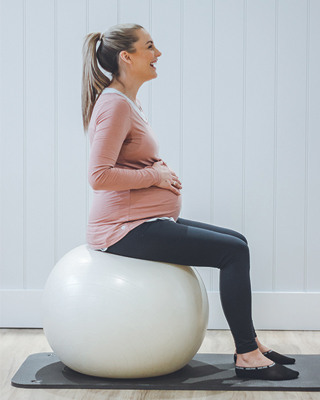Pregnancy & Motherhood
Physiotherapy is an ideal way to reduce pain and discomfort during pregnancy and into motherhood. Whether you are suffering from pelvic girdle pain, back pain, general musculoskeletal issues, looking to manage and treat abdominal separation or need relief from mastitis or blocked ducts, our highly trained Physiotherapists with extensive experience in pre/postnatal care will help get your body on the right track and give you some relief.
If you’re pregnant or you’ve recently had a baby, a focused physiotherapy assessment and treatment can help you manage:
- Lower back pain
- Abdominal muscle separation (DRAM)
- Pelvic girdle pain
- Pelvic floor dysfunction
- Pregnancy related musculoskeletal pain
- Mastitis and blocked ducts
- Rib, neck, wrist and thumb pain, and
- Sprains and strains
Pelvic Health
Pelvic floor dysfunction is common amongst all women (especially when you’ve been through pregnancy and childbirth) and the impact of a compromised core, ‘sneeze pee’ and constant back pain can stop you from living your best life.
We offer an expert and personalised approach to pelvic floor recovery and pelvic health treatment.
If you’re suffering from any of these conditions or symptoms, our pelvic health physios can help:
- Sensation of heaviness, bulging or discomfort in the pelvic area
- Urine leakage when you exercise, laugh, cough, sneeze, lift or get out of a chair or bed
- Frequent need to go to the toilet
- Trouble reaching the toilet in time
- Difficulty emptying your bladder or bowel
- Difficulty controlling wind
- Difficulty controlling your bowel
- Pain in the pelvic area
- Pain during sex
Our skilled physiotherapists are specially trained and qualified in women’s pelvic health. We take you a thorough pelvic floor health assessment so we can gauge where you’re at and provide a tailored treatment plan just for you.
This often includes:
- Exercises designed to strengthen your pelvic floor
- Biofeedback (electronic monitoring) and real time ultrasound
- Manual treatment of the muscles and help training the pelvic floor to function properly
- Guidance around fitness, health and wellbeing and daily activities designed to support your recovery
- Good bladder and bowel habits to maintain your pelvic floor both before and after pregnancy and beyond, as well as during menopause and later life.

